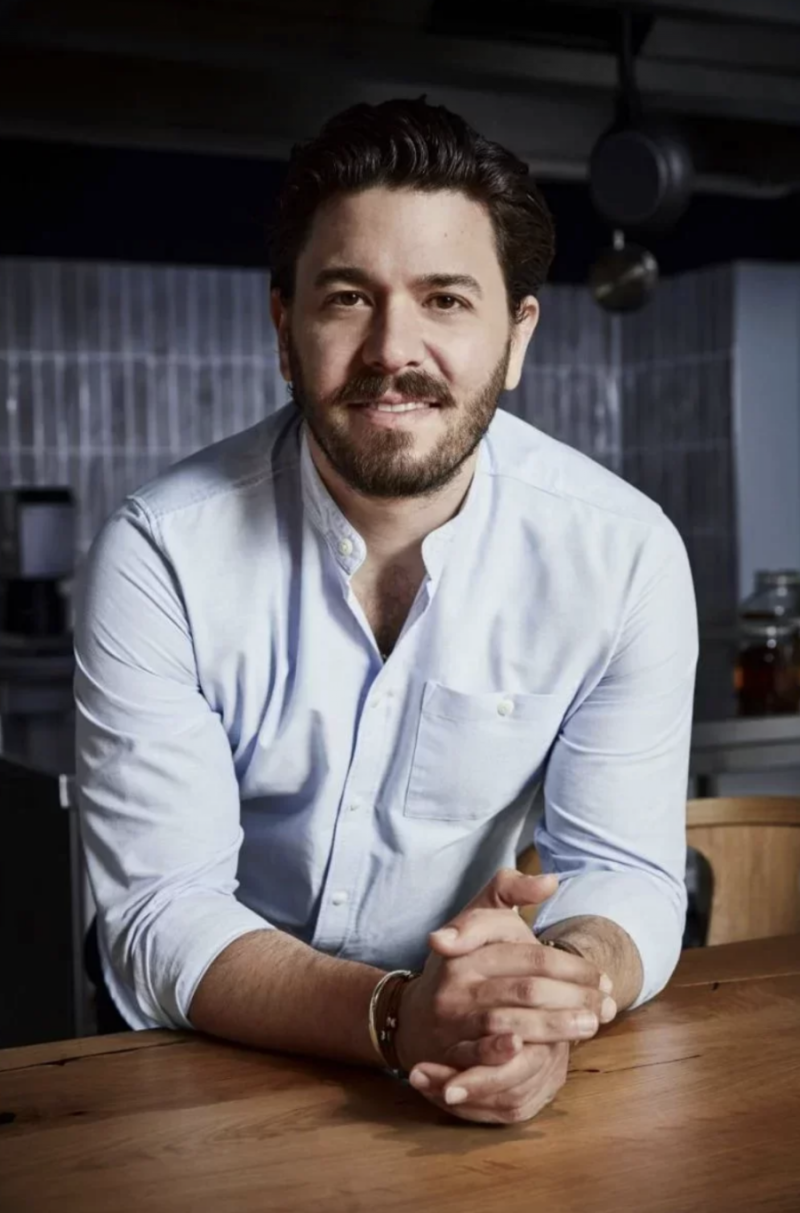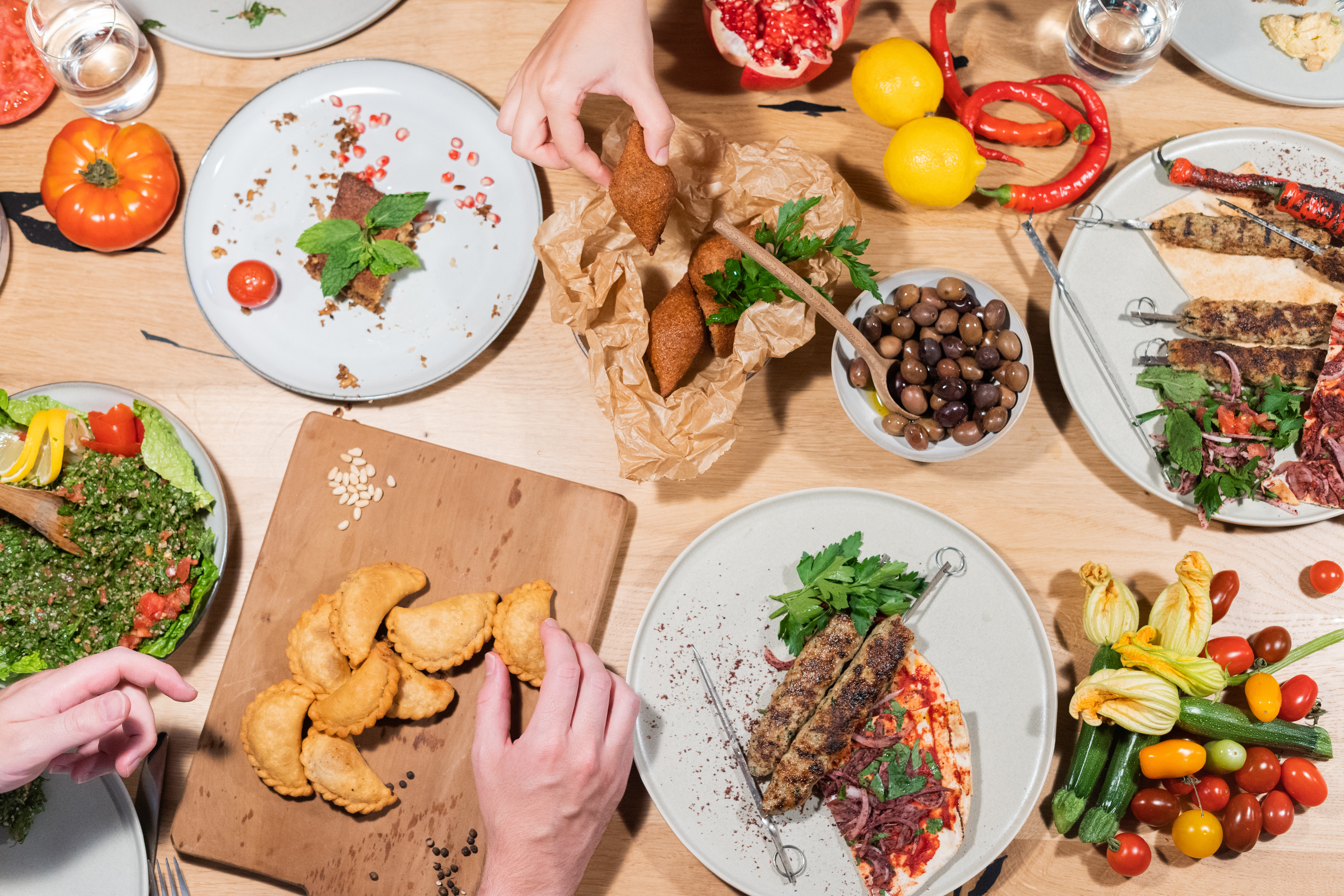
Mazen Rizk, founder and CEO of German company Infinite Roots. (Credit: Person photographed)
By the end of January, German company Infinite Roots, founded and managed by Byblos-born Lebanese Mazen Rizk, closed a $58 million Series B round of investment.
Investors include Dr. Hans Riegel Holding, the company that produces Haribo confectionery, the EIC fund, REWE Group and Betagro Ventures. Other investors present in the company's capital, such as Clay Capital, FoodLabs, Redalpine, Simon Capital and Happiness Capital, also participated in this package.
This brings the total amount raised by Infinite Roots since its launch in 2018 to over $70 million, the latter having raised $10 million in Series A investment, in August of 2020.
The biotech company, which invests in the development of foods based on mushroom mycelium, stated in a press release — issued in connection with this latest fund-raising — that the package represents “the largest investment in mycelium in Europe,” despite an economic climate that represents "one of the worst fund-raising environments in the last 20 years.”
"This proves the potential of this sector and the importance of such a product range in today's world,” said the company's CEO Mazen Rizk.
Formerly known as Mushlabs, Hamburg, Germany-based Infinite Roots intends to use this sum to "increase its production capacity and prepare to launch its products worldwide.” The company currently has no products on the market.
In the long term, the company said it wants to "play a key role in transforming the global food system through the versatile applications of mycelium,” at a time when there is an urgent need to "rethink food production and consumption" and make it more sustainable.
The mycelium of edible mushrooms is cultivated in a fermentation process that reduces growing time and resources used, explained the company. According to Rizk, its products "emit 95 percent less CO² than meat production, and their production consumes considerably less space and water than animal or vegetable products.”
In this context, Infinite Roots said that its mycelium-based products are neither plant nor animal-based, and can satisfy the growing demand for healthy alternative food products, thereby improving food safety.
Reproduction of tastes and textures
To manufacture its products, Infinite Roots adopted a fermentation process that optimizes the conditions for mushroom nutrition and growth. This allows the mycelium to be harvested in a matter of days, compared with several weeks in traditional cultivation, without compromising the nutritional quality of the final product.
By investing in this sector, the company hopes to lead a revolution in the food sector by introducing alternative solutions, like those offered by plant-derived or cultivated meat. "We can reproduce all kinds of tastes and textures so that we can adapt our products to local cuisines,” said Rizk, adding that he has "for example reproduced kafta or kebbe based on mycelium indistinguishable from meat-based ones.” While he said he can reproduce any type of dish, the founder added that the process can also be used to create textiles or leather.
 The range of products developed from mushroom mycelium, including kafta and kebbe. (Credit: Mazen Rizk)
The range of products developed from mushroom mycelium, including kafta and kebbe. (Credit: Mazen Rizk)
After obtaining his bachelor's degree in biology and master's in molecular biology in 2009 from the Lebanese American University (LAU) in Byblos, he moved to Germany, where he obtained his doctorate in biotechnology and technical microbiology from the Technical University of Hamburg in 2014.
Since 2015, Rizk worked for almost two years at Ohly, the world's third-largest producer of yeast extracts. Rizk was then introduced and captivated by the vast world of food technology.
"I always wanted to do something that would enable me to find solutions to help people," explained Rizk, who wanted to "become a doctor, just like [his] father.”
"I found that by designing mycelium-based products, I could also fulfill this objective,” he continued.
He began to develop the foundations of the project that would become Mushlabs in 2018 and then, at the end of 2023, Infinite Roots.
Today, the company employs over 70 people, almost 10 percent of whom are Lebanese, and intends to make 2024 the year it starts producing and marketing its food.
"We have already formed several partnerships in European and Asian countries," said the CEO.
“[Partnership in Lebanon] is planned, but we don't have a precise date yet," he concluded.
This article was originally published in L'Orient-Le Jour.